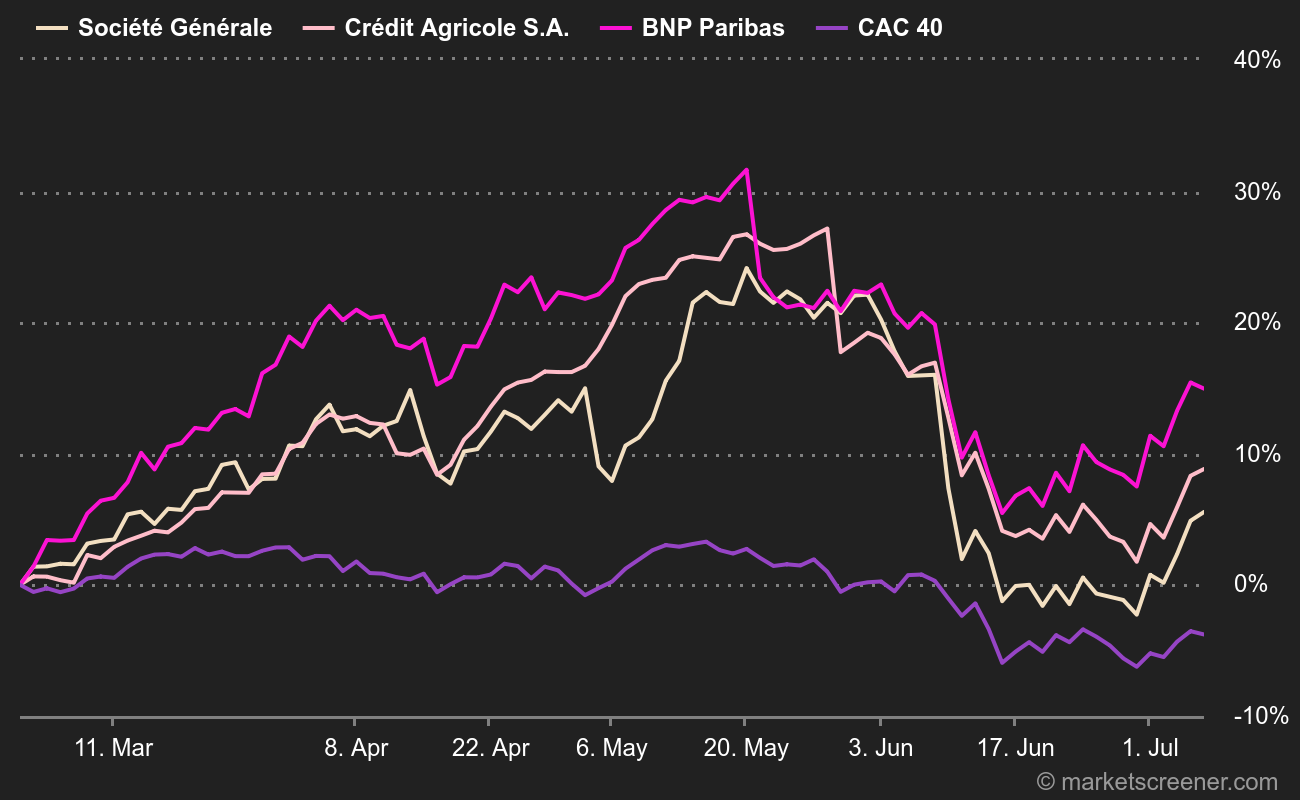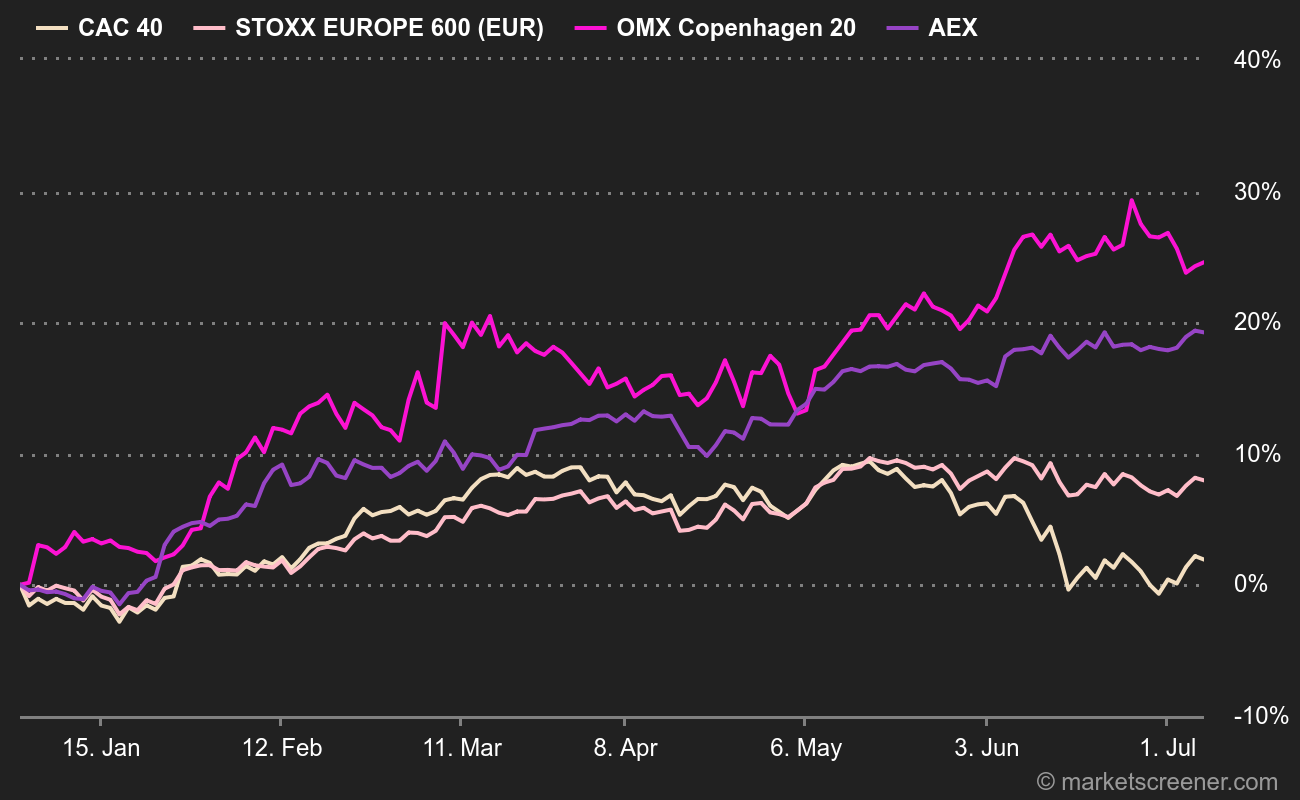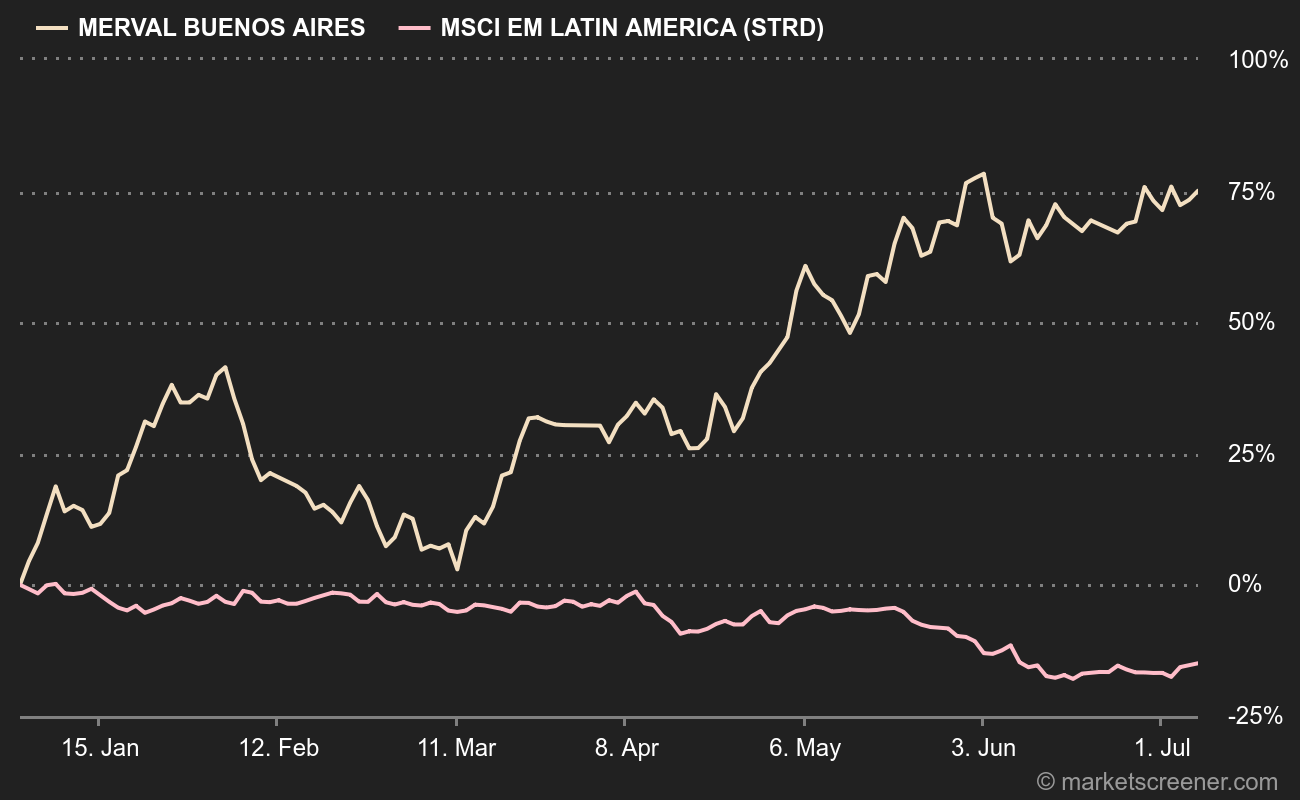CAC 40 rebounds
The day after the results of the first round of parliamentary elections, the French CAC 40 ended a three-week slide. The index jumped as much as 2.8% in the morning before retracting its gains later in the day.
Indeed, analysts interpreted the results of the vote with some relief. Fears of an absolute majority for the Nouveau Front Populaire, whose line on the economy is restrictive for the market and very spendy, or for the Rassemblement National, also renowned for its high-spending policies, seem potentially remote.
The RN's expansionary fiscal policy, likely to increase debt and disrupt markets, also seems to be out of the question. As a result, the 10-year spread on Franco-German debt narrowed by 80 basis points to its lowest level in two weeks.
This news acted as a catalyst for banking stocks, which led the advance of the Stoxx Europe 600 index. Société Générale, BNP Paribas and Crédit Agricole all jumped by more than 5%. Buoyed by this trend, the euro climbed 0.15% to its highest level since mid-June.

Performance in Europe
The Stoxx Europe 600 is up by a healthy 6.8% since January 1. The AEX, the benchmark index in the Netherlands, outperformed by 17.42%, driven by its two semiconductor titans, ASML (+40%) and ASM International (+50%).
The Danish OMX posted even stronger growth (+26.61%), buoyed by the performances of Ambu (+30%) and Novo Nordisk (+44%).

Argentina outperforms in the LATAM region
President Javier Milei's package of very liberal and expansionist economic reforms since his election seems to be revitalizing the Buenos Aires stock market. Since taking office in December, he has embarked on a program that includes investment incentives, the privatization of certain public entities, as well as a review of the tax system, including the introduction of a new tax rate.vision of the tax system, including income tax, and the reduction of the benchmark interest rate from over 100% to 40% since he took office. A policy that seems to be bearing fruit: the IMF forecasts a slowdown in inflation of over 20 points.
The Merval Buenos Aires, the market's benchmark index, also seems receptive to these changes. It posted a significant rebound of 61.1% in one week, taking its gains to 73.3% since January 1.

Performance since January 1

 By
By 



















